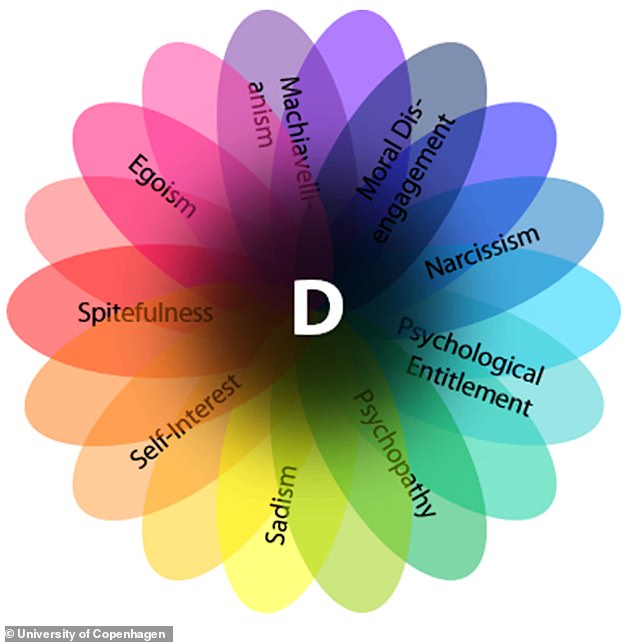Many of the personality traits commonly found in criminals are expected: aggression, narcissism, and defensiveness, for example.
But a new study has revealed another, more surprising characteristic that could be associated with those with a more cheerful disposition.
Openness, which experts define as a willingness to try new experiences, is also commonly seen in the character of criminals, research has found.
Experts at Babes-Bolyai University in Romania conducted interviews with inmates at a high-security prison and compared their personality traits to those of a group of matched controls in the community.
According to the study, repeat offenders are more likely to have high levels of neuroticism. Pictured: James Gandolfini as his character, gangster Tony Soprano, one of the best-known fictional criminals
Discussing the prisoners’ shared enjoyment of new experiences, the researchers said this may also increase their willingness to take risks, which could lead to criminal behaviour.
However, openness did not appear to predict recidivism, indicating that this trait may be more relevant to initial offending.
This trait is the only “bright triad” of personality that increases the chances of committing a crime, the study found.
Extroversion, which is generally associated with sociability and assertiveness, was lower in both first-time and repeat offenders compared to individuals with no criminal history.
Also surprising was the association between neuroticism and criminal behavior.

The study evaluated prisoners from a high-security prison in Romania, such as Bucharest-Rahova (pictured)
Neuroticism (a tendency to respond poorly to stress, resulting in anxiety, anger, and sadness) was consistently associated with both first-time offending and recidivism.
This suggests that emotional instability may be a risk factor for participating in criminal activities and continuing to do so over time.
Overall, the study found that the strongest predictor of criminality was “dark triad” traits: higher levels of emotional instability, risk-taking and deceit.
“Each individual combination of these traits is significantly associated with criminal behaviour and the likelihood of reoffending,” said Professor Laura Visu-Petra of Babes-Bolyai University, who led the study.
“People involved in criminal activities report emotional instability (high neuroticism), reduced positive emotions, lower assertiveness, and decreased sensitivity to social feedback (low extraversion),” he said. Psychological Post.

Prisoners are more likely to be emotionally unstable, willing to try new things, and less assertive than the general population.

All dark personality traits can be traced back to a general tendency to place one’s own goals and interests above those of others, even to the point of finding pleasure in hurting others. Selfishness, Machiavellianism, narcissism, psychopathy, sadism, spite, and others are some of the traits that represent the dark and malevolent side of the human personality.
Interestingly, the study found that extroversion (normally associated with sociability and assertiveness) was lower in both first-time and repeat offenders, compared to individuals with no criminal record.
Which means that offenders are more likely to be reserved or less outgoing than their peers.
Unsurprisingly, the researchers also found that sadism (the tendency to enjoy causing harm to others) was linked to first offending, but not to repeat offending.
Scientists warn that not everyone with “dark triad” personality types will become criminals.
In fact, Professor Visu-Petra says those with these traits are also often found in high-level corporate jobs.
Other dark traits, such as a lack of empathy, a vengeful spirit, and a sense of deserving more than others, did not emerge as significant predictors of criminal behavior.
The study, published in Scientific Reports, included 578 participants, divided into two groups: a general community sample of 282 individuals and a group of 296 inmates from two maximum security prisons in Romania.
The group of inmates was divided into two subgroups: first-time offenders (129 people) and repeat offenders (167 people).
Unusually, two of the researchers observed the inmates from inside the prison to obtain a representative picture of the prisoners’ personality traits.
Researchers hope the study will help people understand how staff treat offenders in prison.
“This will not only affect the professionals working in prisons, but will also contribute to creating a safer and more tolerant community for all of us.”


